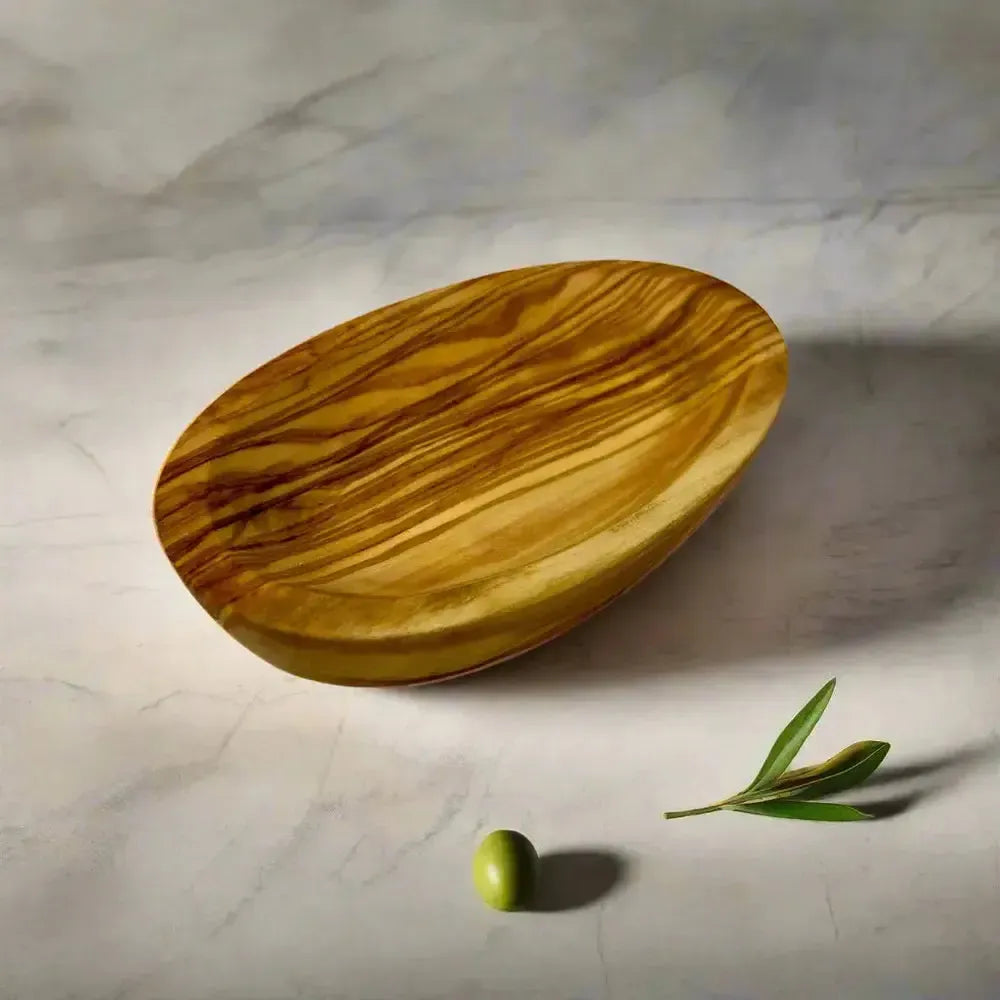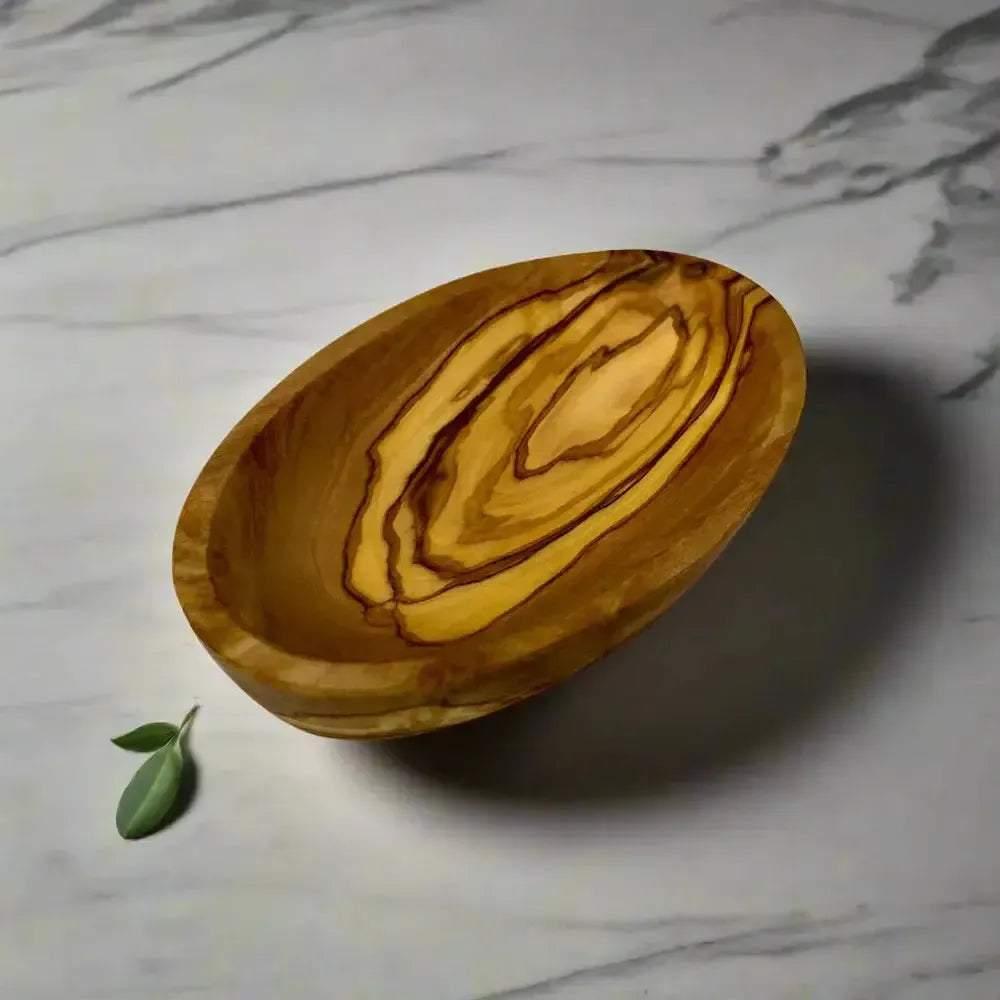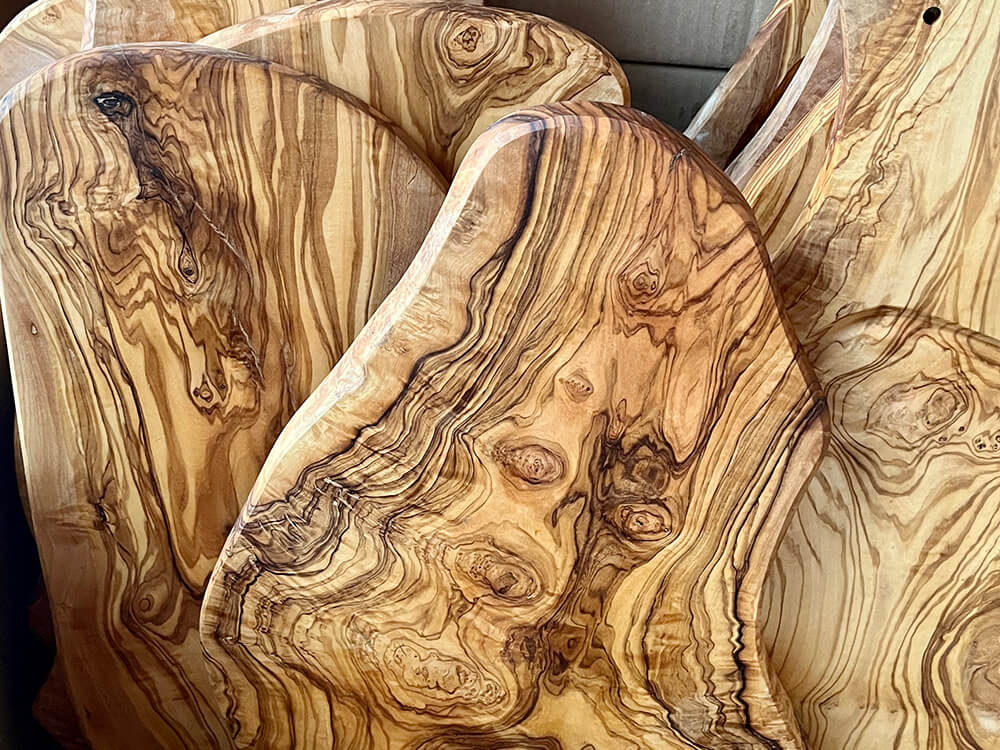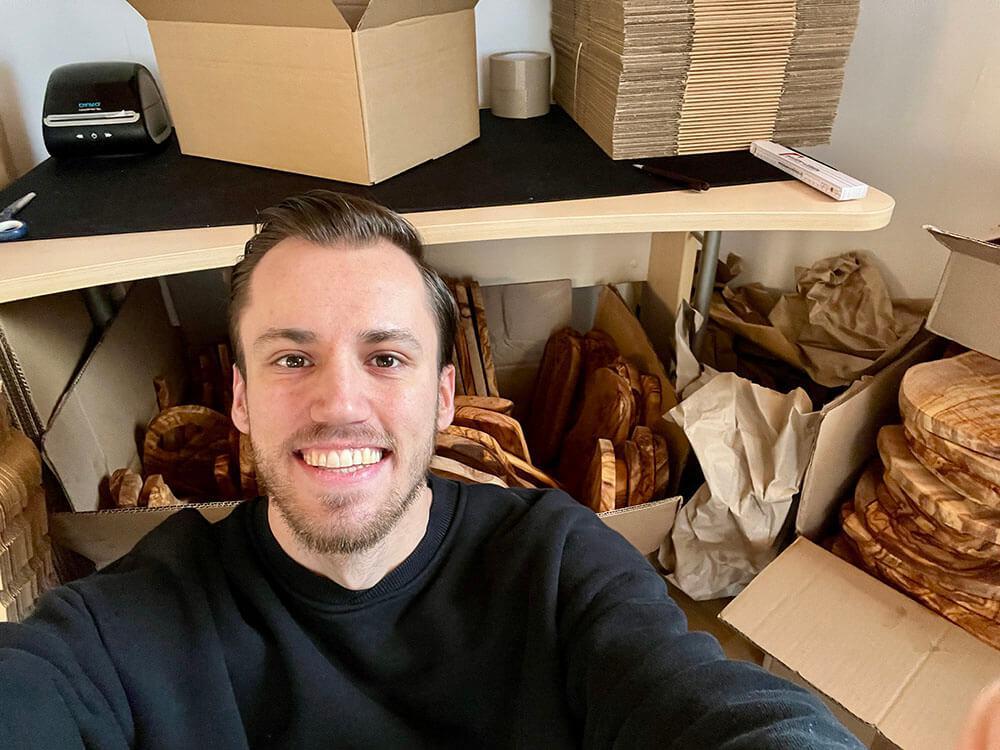









Why olive wood products are more expensive – and why they are worth it
Rare and High-Quality
Olive wood grows slowly, is limited in availability, and is considered one of the most noble types of wood in the world.
Traditional Handcraft
Our products are made in a small workshop in Sfax, Tunisia – known for one of the best qualities of olive wood.
Elaborate Processing
The dense, hard structure of olive wood requires a lot of time, skill, and special tools – for extraordinary durability.
Unique Grain
Each piece is a handmade unique item with individual grain and natural charm.
Sustainable Origin
Our wood comes exclusively from olive trees that have reached the end of their natural life – responsibly harvested and fully utilized.
Naturally Hygienic
Olive wood has antibacterial properties and remains durable and beautiful even with daily use.
Conclusion
An Olivsen olive wood product is a conscious decision for genuine handcraft, sustainable origin, and quality that brings joy for a lifetime.
Your Advantages
Product reviews
Save in a Set
With our sets, you get our bestsellers in a practical bundle and also save.

Why Olive Wood?
Olive wood is not only beautiful but also extremely durable and robust – perfect for daily use in the kitchen. Its dense structure ensures that it is cut-resistant and absorbs little moisture.
Additionally, olive wood has natural antibacterial properties, making it particularly hygienic. The unique grain makes each piece a one-of-a-kind and brings Mediterranean flair to your home.

Origin & Production
Our olive wood products come from Tunisia, specifically from the Sfax region – known for one of the best olive wood qualities worldwide.
Here, in a traditional craft workshop, our cutting boards, kitchen helpers, and bowls are lovingly handcrafted.
Thanks to local production directly on site, we can ensure sustainable production and short, efficient transport routes.

Support Young Startup
Hello! I am Daniel, the founder of Olivsen. With Olivsen, I want to make a statement against mass consumption and offer truly high-quality & durable kitchen products. Products that truly last for decades .
Daniel
Founder
Frequently Asked Questions
Why are olive wood products more expensive than other wooden kitchen products?
Rare and High-Quality
Olive wood grows slowly, is limited in availability, and is considered one of the most noble types of wood in the world.
Traditional Handcraft
Our products are made in a small workshop in Sfax, Tunisia – known for one of the best qualities of olive wood.
Elaborate Processing
The dense, hard structure of olive wood requires a lot of time, skill, and special tools – for extraordinary durability.
Unique Grain
Each piece is a handmade unique item with individual grain and natural charm.
Sustainable Origin
Our wood comes exclusively from olive trees that have reached the end of their natural life – responsibly harvested and fully utilized.
Naturally Hygienic
Olive wood has antibacterial properties and remains durable and beautiful even with daily use.
Conclusion
An Olivsen olive wood product is a conscious decision for genuine handcraft, sustainable origin, and quality that brings joy for a lifetime.
Where does the olive wood come from and where do you produce?
Our olive wood products come from Tunisia, specifically from the Sfax region – known for one of the best olive wood qualities worldwide.
Here, in a traditional craft workshop, our cutting boards, kitchen helpers, and bowls are lovingly handcrafted.
Thanks to local production directly on site, we can ensure sustainable production and short, efficient transport routes.
Are your olive wood products treated?
Our products are completely untreated and are simply rubbed with cooking oil.
Are your olive wood products made from solid wood or glued?
Yes, all our products are made from real solid wood and are crafted from a single piece of olive wood – without gluing or joining.
This makes our cutting boards, kitchen helpers, and bowls particularly high-quality, stable, and have a pleasantly heavy, natural weight.
Are your olive wood products sustainable?
Yes, olive wood is a sustainable material. The trees are only felled when they no longer bear fruit, and the wood is fully utilized.
Our olive wood comes from Tunisia, specifically from the Sfax region – known for its excellent olive wood quality.
The production of our cutting boards, kitchen helpers, and bowls takes place directly on site in a traditional craft workshop.
Through local manufacturing and efficient transport, we ensure environmentally friendly and resource-saving production.
Can I use your olive wood products for hot dishes?
Yes, olive wood is excellent for use in the kitchen due to its hardness and density. It is heat-resistant and does not warp, even with frequent contact with hot foods. Additionally, olive wood is gentle on coated pans and pots.
Can your olive wood products splinter or crack?
Olive wood is naturally very robust and durable. If the products are properly cared for, the risk of splintering or cracking is minimal. It is important not to soak the products in water for extended periods and to protect them from excessive heat exposure. Regular oiling with cooking oil helps preserve the wood's structure and keep it supple.
Does the color of olive wood change over time?
With the right care, the warm, honey-yellow color of olive wood will last for a long time. Over time, however, the wood may darken slightly, which is a natural process and further highlights the beauty of the wood. Regular rubbing with olive oil supports this process and brings out the grain particularly well.
How should I care for my olive wood products?
To keep your olive wood products beautiful, you should take good care of them.
Olive wood products should always be hand washed with warm water and a little mild dish soap, and then thoroughly dried to avoid water stains. To preserve the natural beauty and smoothness of the wood, you should regularly rub it with some cooking oil. Please note that olive wood products should not be cleaned in the dishwasher, as this can damage the wood.



















